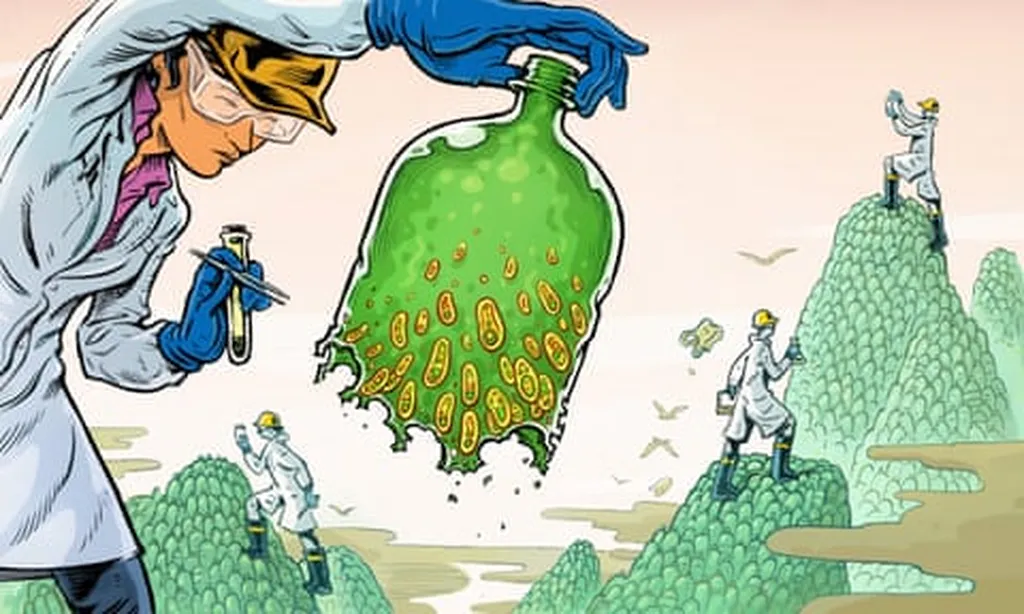In the heart of Thailand, researchers are pioneering a green revolution that could reshape the future of agriculture. Qudrat Ullah, a leading scientist at the Food Technology and Innovation Research Center of Excellence, Walailak University, is at the forefront of this transformation. His recent study, published in the *Journal of Agriculture and Food Research* (or *Journal of Agricultural and Food Research* in English), explores innovative biotechnological approaches that promise to enhance crop quality, reduce environmental impact, and boost yields.
The study highlights the potential of biopesticides, such as Bacillus thuringiensis and Trichoderma spp., which have shown remarkable efficacy in reducing chemical pesticide use by up to 70% in rice fields. This shift not only addresses environmental and health concerns but also leads to a significant increase in yield, up to 35%. “These biopesticides attack pests through toxins or behavioral modifications, offering a sustainable alternative to conventional chemical-based pesticides,” Ullah explains.
But the innovations don’t stop at pest management. The research also delves into biotechnological advances like Lactiplantibacillus plantarum fermentation and CRISPR-Cas9 gene editing, which have been shown to enhance the flavor of crops. In raspberry experiments, these techniques increased the volatile and flavonoid amounts by 15-20%, making the berries more attractive to consumers.
The study also explores the role of nanotechnology and biostimulants in enhancing the performance of biopesticides and improving plant hardiness. These innovative technologies could pave the way for more resilient crops that can withstand environmental challenges and food scarcity.
The commercial implications of this research are substantial. As the world grapples with food security and environmental sustainability, these biotechnological approaches offer a promising solution. They could revolutionize the agriculture industry, making it more efficient, sustainable, and profitable.
Ullah’s work is a testament to the power of innovation in addressing global challenges. As he puts it, “The future of agriculture lies in our ability to harness the power of biotechnology to create sustainable, high-quality crops.”
This research not only shapes the future of agriculture but also has significant implications for the energy sector. As the demand for biofuels continues to grow, the development of high-yield, resilient crops could play a crucial role in meeting this demand. Moreover, the reduced use of chemical pesticides could lead to cleaner water and soil, which is essential for the production of biofuels.
In conclusion, Ullah’s research offers a glimpse into the future of agriculture, where biotechnology and innovation converge to create a more sustainable and profitable industry. As we face the challenges of food scarcity and environmental degradation, these biotechnological approaches could be the key to a greener, more secure future.

